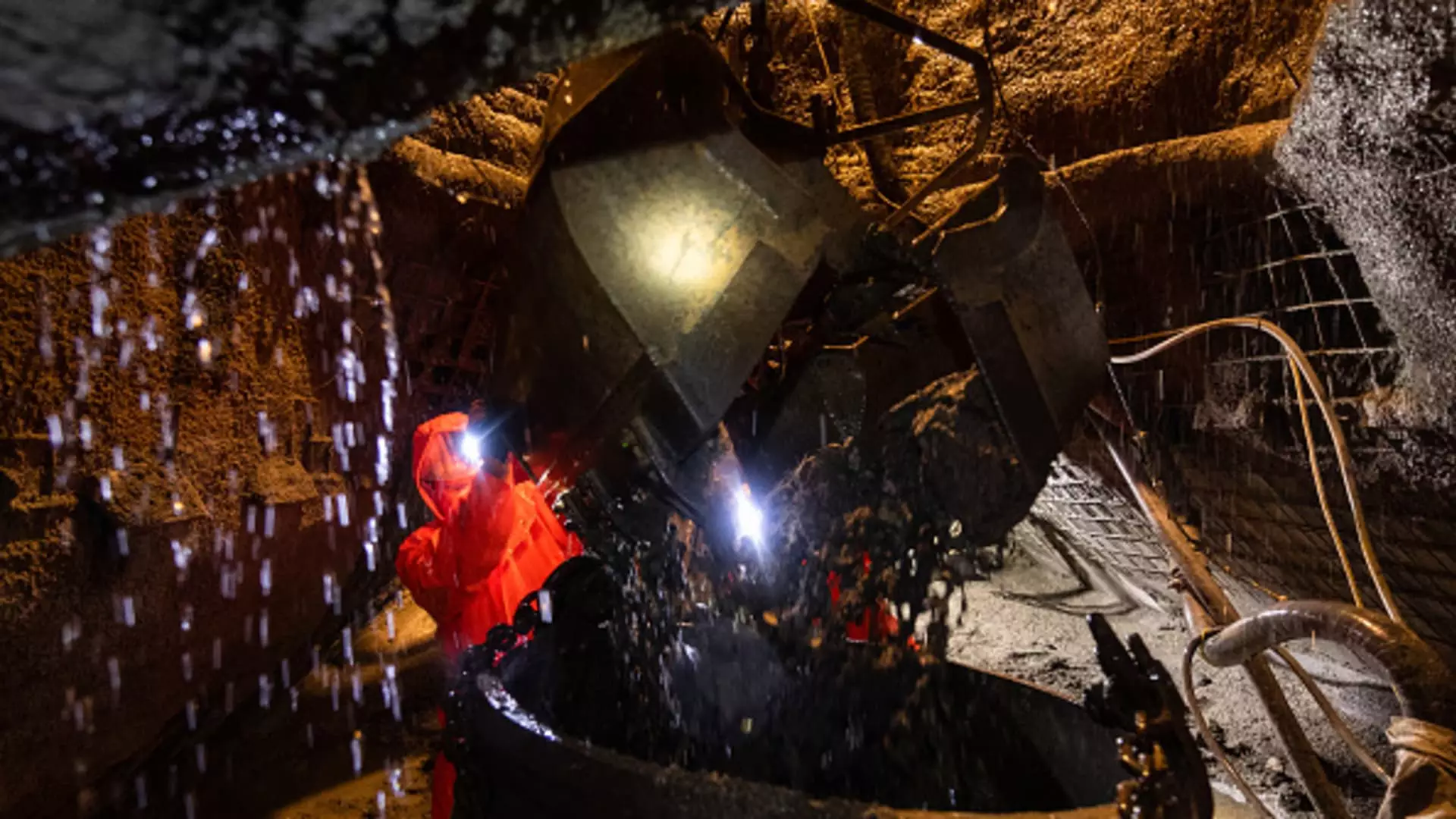In a recent development, U.S. government researchers visited the Sangdong Mine in South Korea to evaluate progress on increasing the supply of tungsten, a critical metal used in various industries. The mine, owned by a subsidiary of Canada-based Almonty Industries, is set to restart operations this year. Tungsten, known for its hardness, is utilized in the production of weapons, semiconductors, and industrial cutting machines. With China controlling over 80% of the metal’s supply chain, the Sangdong Mine holds the potential to produce half of the world’s remaining tungsten supply.
The United States has not engaged in commercial tungsten mining since 2015, highlighting the country’s reliance on foreign sources for critical minerals. The U.S. Geological Survey plans to provide a comprehensive update on the Sangdong Mine in its 2025 report, emphasizing the importance of diversifying the supply chain for strategic minerals. As part of its national security strategy, the Biden administration has imposed tariffs on tungsten and other critical minerals, aiming to reduce dependence on foreign suppliers.
China’s dominance in the global supply of critical minerals has raised concerns about potential export restrictions and market manipulation. While Beijing has not yet placed limits on tungsten exports, recent moves to control the supply of other metals like antimony have signaled a shift towards stricter regulations. The possibility of China using export controls as a retaliatory measure in response to trade disputes, such as increased tariffs, adds to the uncertainty surrounding the future of critical mineral supply chains.
In light of the geopolitical implications of mineral scarcity, the U.S. Energy Department has allocated significant funding to support domestic mining and processing of critical minerals. The threat of supply chain disruptions due to trade tensions underscores the need for Western nations to reduce their reliance on Chinese sources. By accelerating efforts to establish alternative supply sources and enhance local processing capabilities, countries can mitigate the risks associated with geopolitical uncertainties and safeguard their national security interests.
The evolving landscape of global critical mineral supply chains necessitates proactive policy measures to address vulnerabilities and ensure a stable and secure supply of essential resources. The strategic importance of tungsten and other critical minerals underscores the need for coordinated international efforts to promote sustainable sourcing practices and reduce dependency on single suppliers. By fostering innovation and collaboration in the mineral sector, countries can enhance their resilience to geopolitical challenges and promote economic growth in a competitive global marketplace.

